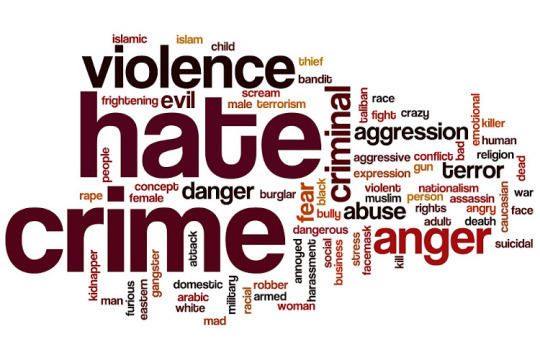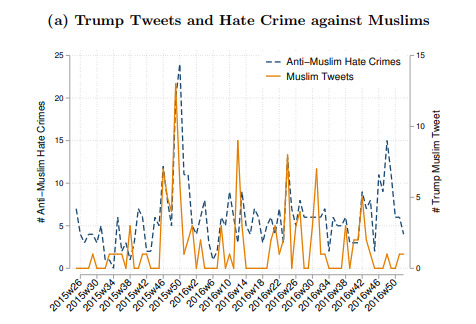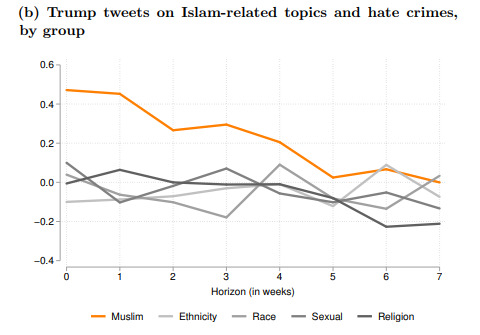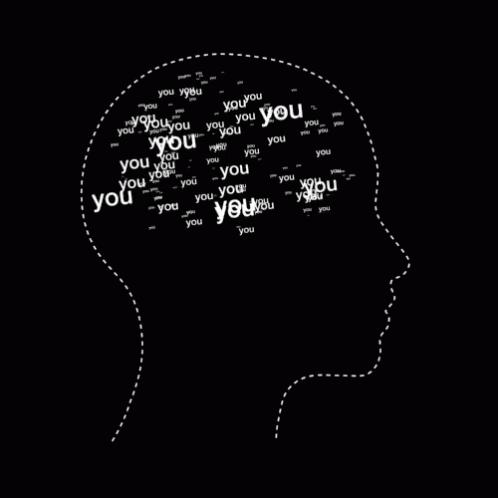Text
WELCOME!

ABOUT THIS BLOG:
This blog mainly focuses on the different sociological, psychological and anthropological factors that cause hate crimes. Enjoy reading!
References are provided at the end of this blog.
3 notes
·
View notes
Text
What are hate crimes?
A hate crime is committed to intimidate, harm or terrify not only a person, but an entire group of people to which the victim belongs. The victims are targeted for who they are, not because of anything they have done. It is a crime motivated by racial, sexual, or other prejudice, typically one involving violence.

0 notes
Text
What is Canada doing to deal with hate crimes?
The following is the Canadian Criminal Code for Public incitement of hatred.
Public incitement of hatred (Source: The Government of Canada Criminal Code)
319 (1) Everyone who, by communicating statements in any public place, incites hatred against any identifiable group where such incitement is likely to lead to a breach of the peace is guilty of
(a) an indictable offence and is liable to imprisonment for a term not exceeding two years; or
(b) an offence punishable on summary conviction.
Marginal note: Wilful promotion of hatred
(2) Everyone who, by communicating statements, other than in private conversation, wilfully promotes hatred against any identifiable group is guilty of
(a) an indictable offence and is liable to imprisonment for a term not exceeding two years; or
(b) an offence punishable on summary conviction.
Marginal note: Defences
(3) No person shall be convicted of an offence under subsection (2)
(a) if he establishes that the statements communicated were true;
(b) if, in good faith, the person expressed or attempted to establish by an argument an opinion on a religious subject or an opinion based on a belief in a religious text;
(c) if the statements were relevant to any subject of public interest, the discussion of which was for the public benefit, and if on reasonable grounds he believed them to be true; or
(d) if, in good faith, he intended to point out, for the purpose of removal, matters producing or tending to produce feelings of hatred toward an identifiable group in Canada.
Marginal note: Forfeiture
(4) Where a person is convicted of an offence under section 318 or subsection (1) or (2) of this section, anything by means of or in relation to which the offence was committed, on such conviction, may, in addition to any other punishment imposed, be ordered by the presiding provincial court judge or judge to be forfeited to Her Majesty in right of the province in which that person is convicted, for disposal as the Attorney General may direct.
Marginal note: Exemption from seizure of communication facilities
(5) Subsections 199(6) and (7) apply with such modifications as the circumstances require to section 318 or subsection (1) or (2) of this section.
Marginal note: Consent
(6) No proceeding for an offence under subsection (2) shall be instituted without the consent of the Attorney General.
Marginal note: Definitions
(7) In this section,
communicating includes communicating by telephone, broadcasting or other audible or visible means; (communiquer)
identifiable group has the same meaning as in section 318; (groupe identifiable)
public place includes any place to which the public have access as of right or by invitation, express or implied; (endroit public)
statements includes words spoken or written or recorded electronically or electro-magnetically or otherwise, and gestures, signs or other visible representations. (déclarations)
In 1985, the Government of Canada added Public incitement of hatred to the Criminal Code. Later on April 29, 2004, the federal government passed Bill C-250 to amend the Criminal Code, adding penalties for inciting hatred against people on the basis of sexual orientation. In the United States, Washington and Oregon were the first states to pass hate crime legislation in 1981; today, 49 states have hate crime statutes. States vary with regard to the groups protected under hate crime laws (e.g., religion, race or ethnicity, and sexual orientation), the range of crimes covered, and the penalty enhancements for offenders. Therefore, through extensive research it is evident that the justice systems in both Canada and The United States of America have made clear changes to better laws on Hate Crimes.
0 notes
Text
PSYCHOLOGY- What psychological factors motivate someone to commit hate crimes?
For this part of my project, i found the 1993’s “Hate Crimes: The Rising Tide of Bigotry and Bloodshed” by Levin and McDevitt the best research to explain psychological factors that influence hate crimes. The authors apply economics and social psychology to account for what they believe is a rising trend in hate crimes. They argue that today’s Americans must compete for diminishing economic opportunities. Competition for scarce resources breeds resentment by other groups are receiving unfair advantages. Similarly, some marginal individuals “compete for moral righteousness”, their self-worth is achieved by denigrating members of another group. Levin and McDevitt believe that resentment is at the root of most hate crimes. “Resentment can be found, at least to sure of some extent, in the personality of most hate crime perpetrators.” Internalizing prevalent societal biases and stereotypes, hate crime offenders vent their frustration for personal the failures by attacking members of groups whom they perceive as intellectually or morally inferior. This conclusion is based not on any is not empirical studies of hate crime offenders but on the on the authors’ social analysis and, to some extent, the tradition of scholarship and commentary on the social psychology of prejudice The authors identify three motivational types of hate crimes.
In Thrill-seeking hate crimes the individual acts with a group to achieve their acceptance.
Offenders involved in thrill-seeking hate crimes are motivated primarily by the “kick” they get from violent behaviour; they are sensation seekers.
Often there is no real reason for these crimes, experts say. They’re committed for the thrill of it, and the victims are vulnerable simply because their sexual, racial, ethnic, gender or religious background differs from that of their attackers
Often the attackers think society doesn’t care about the victims – or worse, will applaud their assault
In McDevitt’s study, 70% of these “thrill offenses” were assaults, including vicious beatings that put victims in the hospital.
Show little or no remorse for their attacks and believe that most, if not all of society supports them but is too afraid to act
In reactive hate crimes, the individual strikes out against others to protect himself from the encroachment of outsiders.
Offenders guilty of reactive hate crimes feel that their interests are being threatened by a minority group (for reasons that may or may not be objective)
In mission hate crimes, an individual becomes convinced that his personal problems are a result of some conspiracy involving an entire group of people with whom he feels compelled to get even.
Ideology and political sympathies play a major role in mission hate crimes. In these cases, (violent) hostile action against minorities has developed into a full blown system.
This research as a whole is important because it explains scholarly evidence, logic, and clarity as to why The human beings have so little compunction about punishing the innocents. This can help us better understand as to why some groups are targeted to this date. It leads to the idea that we may be blaming so many people or groups just for personal thrill, to blame others for our failures and protection without even knowing too. It is important to know the psychological push to prevent others and ourselves from indulging into any sort of hate crime towards anyone.
Although Levin’s and McDevitt’s economic and social-psychological analyses are interesting, the authors leave many questions unanswered. For example, why is “the desire to commit a hate crime overpowering” for certain individuals? Many, perhaps most, Americans are insecure about their economic future.Why are some “resentful,” and why do some of the resentful commit hate crimes? Moreover, the authors fail to account for the extent of intergroup cooperation and therefore for many positive formal and informal developments in tolerance. Future research should keep in mind these question and try to account for the extent of inter group cooperation and many positive formal and informal developments in tolerance.

0 notes
Text
SOCIOLOGY- What is the impact of social media on hate crimes?
For the sociological part of this project, i focused on a research by Karsten Muller and Carlo Schwarz which focused on the effect of social media on hate crimes in USA.
The purpose of the research which was published on the 14th of May 2018 was to find out whether social media motivated real-life action, with a focus on hate crimes in the United States and mainly talked about how Trump’s twitter activity encouraged anti-Muslim crimes in the past year. Muller and Schwarz analyzed the relationship between Trump’s tweets and anti-Muslim hate crimes by drawing upon a number of data sources, including the FBI’s hate crime data between the years 1990 and 2016 as well as Twitter usage across the country. First, they documented that the number of anti-Muslim hate crimes recorded by the FBI increased during Trump’s presidency. In fact, anti-Muslim crimes have been more prevalent under Trump compared to any other previous president, including George W. Bush following 9/11. Second, the researchers found strong statistical correlations between the number of Islam-related tweets made by Trump in a single week and the number of anti-Muslim hate crimes that took place in the days and weeks that followed. Trump’s anti-Islam tweets were only correlated with anti-Muslim crimes and not other types of hate crimes.
Although suggestive, these connections do not prove that Trump’s social media messages caused the spike in crimes. Perhaps Trump’s tweets simply reflected an already growing anti-Muslim sentiment from the public. So Muller and Schwarz analyzed the geographic connection between Trump’s tweets and hate crimes. Since Twitter usage tends to vary by county, they looked at whether Trump’s Islam-related tweets were related to spikes in anti-Muslim crimes where more people used Twitter. They found that the spike in hate crimes did occur mainly in U.S. counties that had high Twitter usage, and this link only showed up after the start of Donald Trump’s presidential campaign.
The importance of this research is that if Trump’s tweets have, in fact, played a role in spurring hate crimes, then social media may be playing an even more powerful role in people’s lives than previously thought. This can be extremely disastrous where social media apps are growing faster than ever? How will we able to prevent this before things get worse?
But still one might wonder if Twitter usage itself may have something to do with the prevalence of hate crimes in a particular geographic area. Maybe places with more Twitter users are more prone to hate-driven violence. Or maybe Twitter users themselves are more likely to be Republican or hold anti-Muslim sentiments. In fact, the data suggests the opposite is likely true. Counties with higher Twitter usage tend to be more Democratic and more ethnically diverse than counties with lower usage. They also have more citizens who prefer to get their news from MSNBC and CNN rather than Fox News. The researchers also looked at whether the areas showing a stronger pattern linking Trump’s tweets and hate crimes were characterized by greater poverty or more crime in general; they were not. There was also no evidence that areas with higher Twitter usage are more prone to hate crimes in general.
A major limitation of this research is that it is correlation not causal. In order to prove that Trump’s tweets truly caused an increase in hate crimes, the researchers would need to run a carefully controlled experiment showing that exposure to such messages leads people to act out in hateful ways. This research also does not prove that Trump’s tweets cause people to hold prejudicial views towards Muslims. In fact, the researchers themselves do not seem to believe this. Instead, they point out that their findings are consistent with the idea that Trump’s presidency has made it more socially acceptable for many people to express prejudicial or hateful views that they already possessed prior to his election.


Panel (a) shows the weekly number of Donald Trump’s Islam-related tweets and the number of anti-Muslim hate crimes in the US after the start of Trump’s presidential campaign. Panel (b) plots the correlation of hate crimes against different groups and Trump’s tweets about topics related to Muslims at horizons between 0 and 7 weeks. The sample period are the weeks after Donald Trump announced his presidential campaign (the week of June 16, 2015).
0 notes
Text
ANTHROPOLOGY- How have hate crimes varied over time?
For the anthropology section i focused on a research given to me about how racism has switched from targeting the black community to white community in South Africa over time and how whites face racism and hate attacks in South Africa
According to South African History Online, apartheid was the ideology supported by the National Party (NP) government and was introduced in South Africa in 1948. Apartheid made laws forced the different racial groups to live separately and develop separately, and grossly unequally too. It tried to stop all inter-marriage and social integration between racial groups. During apartheid, to have a friendship with someone of a different race generally brought suspicion upon you, or worse. More than this, apartheid was a social system which severely disadvantaged the majority of the population, simply because they did not share the skin colour of the rulers. Many were kept just above destitution because they were ‘non-white’. This Act also got rid of 'black spots’ inside white areas, by moving all black people out of the city. Well known removals were those in District 6, Sophiatown and Lady Selborne. These black people were then placed in townships outside of the town. They could not own property here, only rent it, as the land could only be white owned.’’ (South African History Online.)
According to International Studies: An Interdisciplinary Approach to Global Issues,
A book by Mark Allen Peterson and Sheldon Anderson, the end of apartheid in South Africa and relatively peaceful transition from white to black majority rule happened in 1994. The collapse of communism Europe from 1989 to 1991 overshadowed this monumental political development. After decades of apartheid run by a seemingly intransigent white government, few scholars predicted its demise or a peaceful transition to majority rule. However things have become terrible for the white farmer community since then.
Taken from an article written by Wallen J following are few of many remarks made against the white community by influential people of South Africa since then:
The national spokesman of a key South African opposition party has said redistributing land from white farmers without compensation is justified because “it is not really their land”.
There have been concerns among South Africa’s white minority that the motion will encourage attacks on farmers
EFF’s leader Julius Malema has previously been convicted of hate speech for singing anti-white songs like “Shoot the Boer [Farmer]”.
Mr Ndlozi said he thought South Africa would be a better place without “whites”.
Mr Malema told a rally. “We are starting with this whiteness – we are cutting the throat of whiteness.” White people are having their land taken from them and forced to live in white camps because most homeless shelters are ‘black only’
Besides that, according to the reports by africacheck.org in 2017/18, the police recorded 62 murders during 58 attacks. Of those murdered, 52 were the owners or occupiers of the farm/smallholding, 9 were farm workers and one was a farm manager. Forty-two murders took place on farms, 15 on smallholdings and one at a cattle post. The majority of the murder victims (46) were white.
This kind of research is important to look into the “reverse-racism” phenomenon, something that has been declined by majority. This might make you wonder if something like that does exist and therefore in the upcoming time can take form at other different places too.
A limitation to this research is that The South African police did not collect statistics on attacks and murders on farms and smallholdings prior to 1997. Henceforth one can’t tell if the crimes saw an exceptional rise after 1994 or it has always been around which creates a blurry line between what is a myth and what are the facts. Future researchers should keep in mind to look into and analyze data set prior to 1994 too so that they can provide with better and more reliable results.
Here is a video showing the inside of South Africa’s white displacement camps:
youtube
2 notes
·
View notes
Text
Reflection/s
Sociology:
I decided to connect the sociological research which i used for this project to D3. Socialization: use a sociological perspective to explain patterns of socialization. The research by Karsten Muller and Carlo Schwarz focuses on the effect of social media on hate crimes in USA, to be more specific, trump’s tweet and the rise in hate crimes that follows. The purpose of the research perfectly fits the expectation D3.3 which focuses on the “the relative influence of primary agents of socialization (ex. Family, peers) and secondary agents of socialization (ex. Media, religion) on the socialization of the individual” or in simple words “How do families, peers, media, religion contribute to a person’s socialization”. The research done by Muller and Schwarz demonstrates how through the use of social media by very influential people like Donald Trump can cause a very noticeable rise in hate crimes and how it can affect patterns of socialization. The research does a great job in connection the use of social media and explaining how it can affect social behaviors in a negative way.

Psychology:
The psychological research, I decided to connect it to C2. Explaining Human Mental Processes and Behavior: use a psychological perspective to explain how diverse factors influence and shape human mental processes and behavior. This research which was done by by Levin and McDevitt focuses on two things. Number 1, how accomplishments achieved by others can create a sense of resentment in people and causes them to achieve their self-worth by denigrating members of another group. This falls perfectly into the expectation “C2.2 explain from a psychological perspective, ways in which context and the influence of other individuals can affect people’s emotional and behavioral responses”. This research, in the first part, successfully talks about how the influence of others (achievements of others) can cause a change in emotional and behavioral response, resentment being the emotional response and committing a hate crime under the category of behavioral response. The second part talks about motivations that come from within which makes someone commit hate crimes which can perfectly fall under the category of “C2.3 Explain how diverse psychological factors influence individual behavior”. This talks about how psychological factors/motivations like sensation seeking, feeling of being threatened by a minority group and personal beliefs can cause a push towards behaviors like hate crimes. Therefore the research was successful in demonstrating the connection between human mental processes, behavior and hate crimes.

Anthropology:
I decided to connect the research for the anthropological part of this project to B2. Explaining Human Behavior and Culture: use and anthropological perspective to explain how diverse factors influence and shape human behavior and culture. The research focuses on different setting from the ones we usually focus on and also showcases the comparison between past and the present situation which is also the main purpose of “B2.3 Understanding human behavior & culture in the present from looking other places/past”. The research successfully demonstrates how human behaviors change overtime. Until the 1990s the racism in South Africa existed against the black race and then how in the recent times it has switched where the black community dominates while the white community faces discrimination and hate crimes committed towards them, especially the white farmers. This also demonstrates how different human behaviors can be seen by looking at different places. In countries like USA and the UK, black communities are still the most targeted but at another location it is the total opposite. Therefore the research was successful in demonstrating how human behaviors and cultures vary place to place and time to time.

1 note
·
View note
Text
References
Anderson, S. R., Peterson, M. A., & Toops, S. (2018). International studies: An interdisciplinary approach to global issues. Boulder, CO: Westview Press.
B, H. (2018, September 11). FACTSHEET: South Africa's crime statistics for 2017/18. Retrieved January 20, 2019, from https://africacheck.org/factsheets/factsheet-south-africas-crime-statistics-for-2017-18/
Grewal, D. (2018, June 26). Do Trump Tweets Spur Hate Crimes? Retrieved from https://www.scientificamerican.com/article/do-trump-tweets-spur-hate-crimes1/
Hate Crime. (2013, November 14). Retrieved January 22, 2019, from https://www.nij.gov/topics/crime/hate-crime/pages/welcome.aspx
Legislative Services Branch. (2019, January 08). Consolidated federal laws of canada, Criminal Code. Retrieved from https://laws-lois.justice.gc.ca/eng/acts/C-46/section-319.html
Levin, J., & Mcdevitt, J. (1994). Hate Crimes: The Rising Tide of Bigotry and Bloodshed. Contemporary Sociology,23(4), 576. doi:10.2307/2076413
Mmller, K., & Schwarz, C. (2018, May 14). Making America Hate Again? Twitter and Hate Crime Under Trump. SSRN Electronic Journal. doi:10.2139/ssrn.3149103
Sahoboss. (2019, January 17). A history of Apartheid in South Africa. Retrieved January 20, 2019, from https://www.sahistory.org.za/article/history-apartheid-south-africa
Wallen, J. (2018, March 24). South Africa: Taking farms from whites is justified because 'it's not really their land', says EFF spokesman. Retrieved from The Independent website: https://www.independent.co.uk/news/world/africa?south-africa-white-farmers-eff-mbuyiseni-ndlozi-anc-interview-a8271096
0 notes